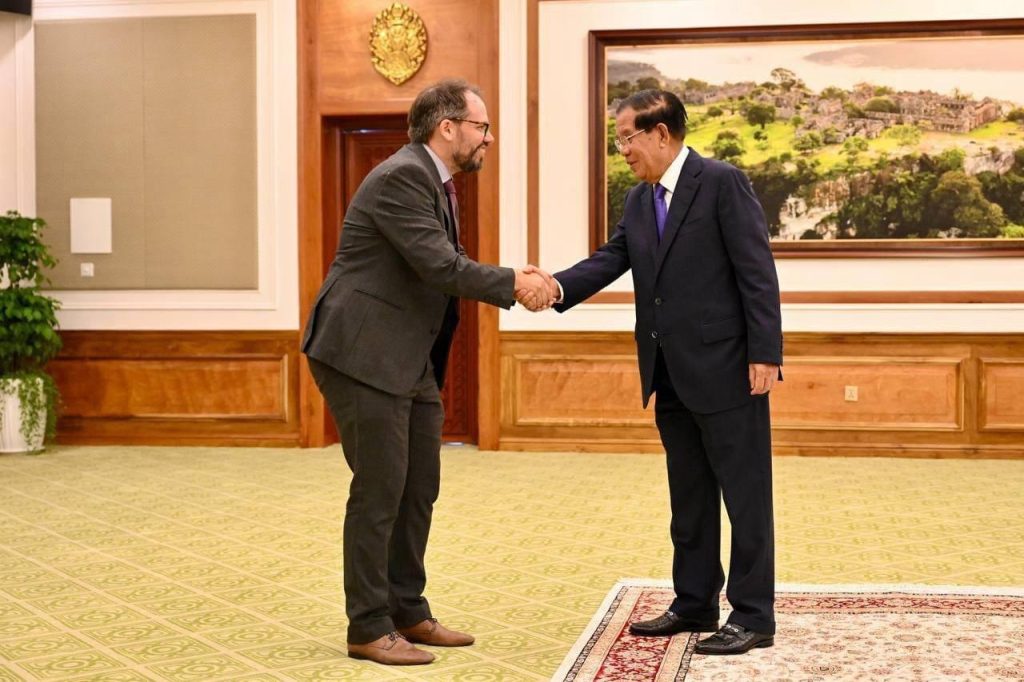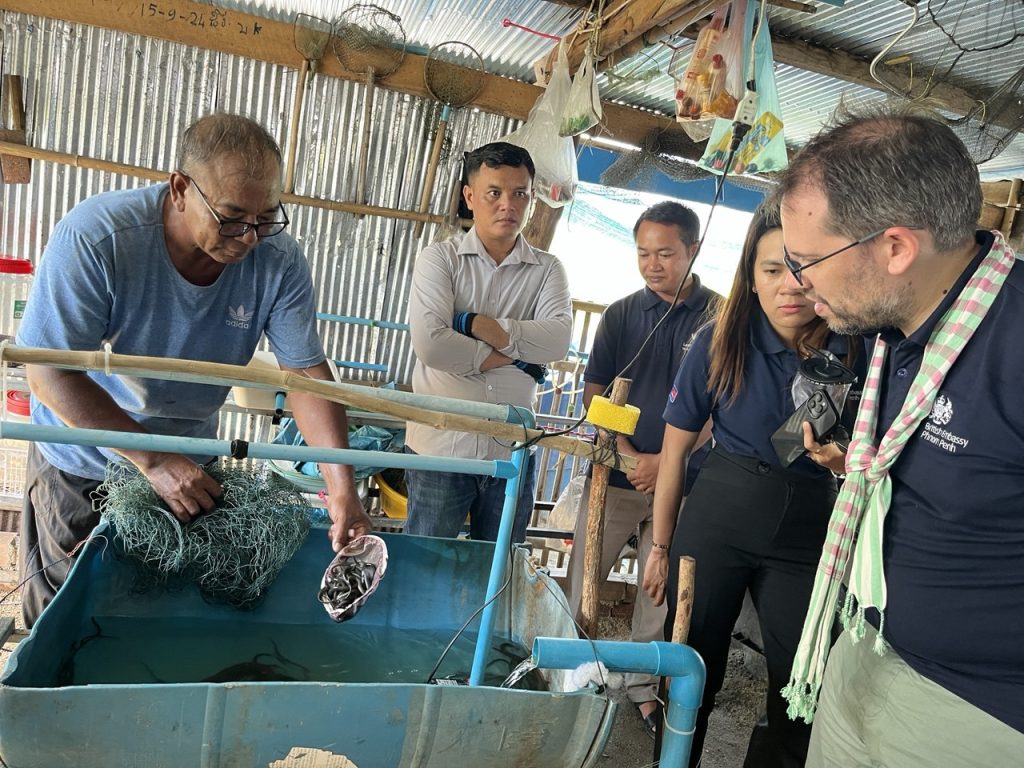Harrison White
In this exit interview, Marc Thayre, Deputy Head of Mission at the British Embassy in Cambodia, reflects on his five-year tenure and the key achievements in strengthening UK-Cambodia business and investment ties.
He shares insights on Cambodia’s post-pandemic recovery, trade dynamics, and the promising future of bilateral cooperation—especially in sectors like education, technology, and sustainable investment—as he prepares to hand over to his successor.
CIR: Looking back on your time in Cambodia, which moments or projects stand out to you as particularly impactful in deepening UK business and investment engagement—especially in key sectors like agribusiness, infrastructure, or services?
It’s been a memorable time for me in Cambodia. A lot has happened in the last five years but the handling of and recovery from COVID has to be the most important. Cambodia contained the COVID pandemic very well and with the help British vaccines at the start they were able to vaccinate the population quickly bringing keys sectors like tourism and manufacturing back to life. It really brought home to me how interconnected the world is. There are lessons to be learned of course but on the whole this was a good place to be due the pandemic.

On the back of COVID, I’m proud of the work the embassy did on developing a roadmap for an automobile and consumer electronics sector. Seeing the automobile sector start to flourish brings a lot of satisfaction about the quality of our development work. It also paved the way for even more ambition including a Green Special Economic Zone.
Then of course our investment in education has grown exponentially and continues to grow. Our new schools are raising standards and the opening of De Montfort University by the Prime Minister makes a world class education accessible for a whole new section of society. This has to be positive for Cambodia’s development.
Trade Imbalance & Growth Areas
CIR: UK imports from Cambodia were around £847 million in the four quarters to Q1 2025, versus only £89 million in exports—resulting in a trade deficit of about £758 million. What barriers have you seen limiting UK exports, and where do you think British firms could make stronger inroads?
I think it is important we rethink the metrics like imports and exports. They are an indicator but more important is the quality of that trade and the levels of investment they bring. The value added given to materials, the amount local businesses earn, the level of employment and amount of tax paid is much more important that a single trading figure. That said, bilateral trade and investment is growing.
Securing top quality trade though is difficult. British business want to feel a sense of fairness in matters like tax and that the quality of their brand is protected. For example, We are continually supporting a business environment where issues like a legal purchasing age to buy alcohol is brought in to ensure incoming brands are damaged by underage drinking.
I have high hopes that the UK tech sector can partner with local innovators to build the next generation of businesses.

Developing Countries Trading Scheme (DCTS)
CIR: Cambodia benefits from zero duties on nearly 99% of export lines under the British DCTS, and recent upgrades simplify rules of origin, boosting access for goods like garments and electronics. How much have you seen this translate into real opportunities for UK buyers sourcing Cambodian goods?
I’m biased but our tariff-free quota-free access with liberal rules of origin requirements is one of the most generous in the world. The key for us has been getting businesses to visit and see the quality that exists. We have seen significant increases in products like rice and cashews. Our goal has to be to make these early transactions a success so that Cambodia’s reputation as a place you can do business remains positive.
Trade Missions & SME Linkages
CIR: You’ve been involved in initiatives like the 2025 trade mission linking UK rice, cashew, and dried mango buyers with Cambodian producers. Which specific outcomes—contracts, partnerships, market access—do you feel were most successful, and what would you encourage your successor to scale up?
There is more to do to spread the name of Cambodian suppliers in the UK. However, Cambodia’s reputation is at risk from those seeing it as a safe place to do criminal activities.
We need to support Cambodia to defend its reputation. I have high hopes in Cambodia’s youth as worthy Ambassadors. I’m sure my successor will be engaging them closely. They are our best partners.
British businesses deliver so many added benefits to Cambodia from improving work conditions, delivering world class training and increasing standards. One example is increasing maternity benefits for our staff. This actually improves loyalty as puts pressure on employers to do the same.

Post-Departure Opportunities
CIR: You’ve flagged areas like legal reform, capital markets, and sustainable investment as promising collaboration fronts. After your departure, where do you most expect UK–Cambodia engagement to grow, and what would you most hope to see in Ambassador Williams’ priority list?
Cambodia is heading into a new stage of development where grants and concessional lending will be tougher to come by. Cambodia will need to consider new ways to raise capital and that is where the UK is a world leader. We have started work to build capacity across the financial sector and have businesses looking for long-term investment.
The Ambassador is passionate in supporting Cambodia and doing a fantastic job (he does write my review!) and that is all I think we all want.





